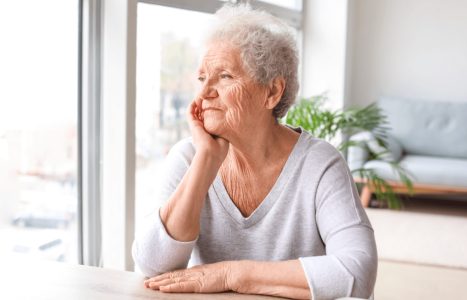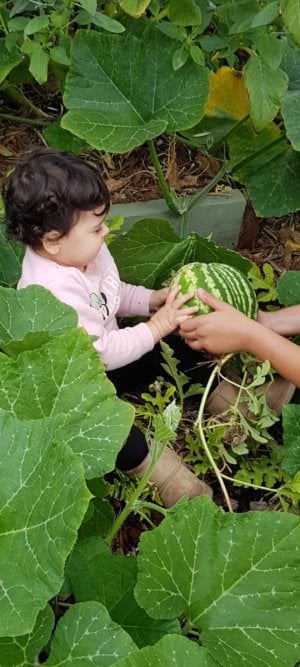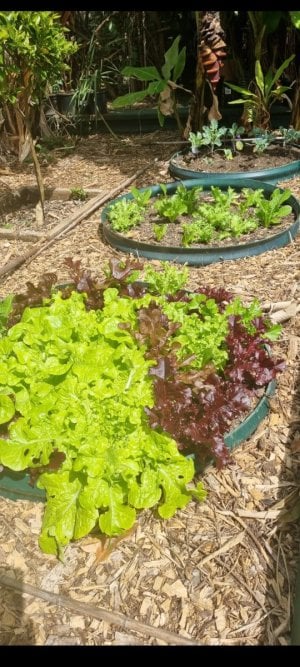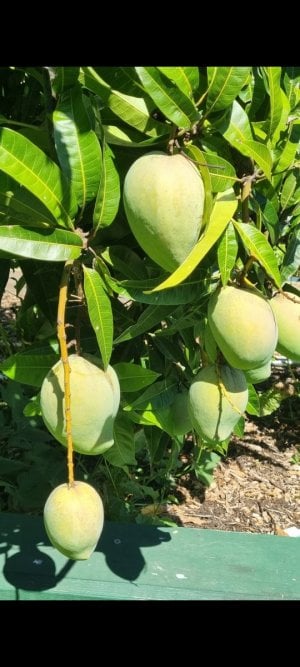Are rising living costs pushing senior Australians to 'extreme' survival measures?
- Replies 28
Many of us are experiencing the strain caused by the steadily increasing cost of living. Each passing day seems to bring higher expenses that take a toll not just on our finances but also on our overall well-being.
The burden of financial pressure perhaps weighs heaviest on senior Australians, who are largely reporting challenges coping with the harsh reality of rising costs.
One such case is Jane Bari, who took it upon herself to make a dramatic lifestyle change when she and her husband Jonathan realised that their pension and savings just weren't going to cut it anymore.
'I felt like we were really at rock bottom. I just figured there's got to be a better way,' she said of the situation.

In late 2017, the couple made the decision to downsize and relocate to a smaller, more affordable home. Their previous residence, a stunning house situated on a one-acre plot in the charming Gippsland, was sold to ensure financial sustainability.
They then dedicated themselves to refining their skills in vegetable cultivation, breadmaking, and food preservation as a means to reduce expenses.
Gradually, a trip to the grocery store transformed from a routine errand into an unattainable luxury.
Jane even humorously referred to herself as an 'economic reality prepper', a somewhat unexpected but fitting label for her life of prudent spending and self-sufficiency.
As for the results? Jane couldn't be happier. 'We're just happy because we are now living below our means, rather than seeing bank accounts empty like it was before,' she said.
Over the course of five years, Ms Bari's brave decision to switch lifestyles helped them transform their financial situation from being burdened by debt to achieving complete debt freedom.
The National Seniors' Survey of Australia reported that a staggering 80 per cent of older Australians are feeling the various pressures of living costs, and this percentage is predicted to rise throughout the coming year.
The situation in Victoria is particularly dire. Council of the Ageing (COTA) Chief Executive Chris Potaris recently spoke out about how women aged 55 and over in the state are the fastest-growing group of homeless Victorians.
'It is a perfect storm that risks overwhelming some older Victorians,' he said.
Unfortunately, creating a safety net is nearly impossible for the vast majority of Australians. Not to mention the fact that most people are too embarrassed and ashamed to even talk openly about their financial troubles.
'One of my elderly neighbours has a television on at night. That is her sole source of light,' Jane shared.
'Another neighbour, I've seen her use a candle for lighting at night. But you don't hear people discussing their dire financial situations because I think poverty or going without fosters a great sense of shaming people.'
In an effort to break free from the shackles of debt, Jane opened her Wonthaggi gardens to the community during a recent sustainability event. In doing so, she shared her story of struggle and success in the hopes of helping other elderly Aussies come to terms with their financial situation.
'With a lot of people in financial situations like this, we tend to internalise it,' she said.
'We think that we are the only ones that are feeling this, so we say nothing, and we just bury it all. I'm trying to tell people, “Don't despair; don't give up. Face the situation and make a plan because—as the old adage goes—if you fail to plan, you plan to fail.”'

The soaring cost of living can be tough to handle, especially for many older Australians. But amidst this reality, there are stories like Ms Bari's that give us hope.
Her journey reminds us that by tackling our financial challenges head-on, creating a plan, and sticking to it, we can achieve stability, just like she did.
What are your thoughts on this story? Let us know in the comments below!
The burden of financial pressure perhaps weighs heaviest on senior Australians, who are largely reporting challenges coping with the harsh reality of rising costs.
One such case is Jane Bari, who took it upon herself to make a dramatic lifestyle change when she and her husband Jonathan realised that their pension and savings just weren't going to cut it anymore.
'I felt like we were really at rock bottom. I just figured there's got to be a better way,' she said of the situation.

The rising pressure on living costs has affected 80 of older Australians, leaving some to explore alternate survival means. Credit: Shutterstock.
In late 2017, the couple made the decision to downsize and relocate to a smaller, more affordable home. Their previous residence, a stunning house situated on a one-acre plot in the charming Gippsland, was sold to ensure financial sustainability.
They then dedicated themselves to refining their skills in vegetable cultivation, breadmaking, and food preservation as a means to reduce expenses.
Gradually, a trip to the grocery store transformed from a routine errand into an unattainable luxury.
Jane even humorously referred to herself as an 'economic reality prepper', a somewhat unexpected but fitting label for her life of prudent spending and self-sufficiency.
As for the results? Jane couldn't be happier. 'We're just happy because we are now living below our means, rather than seeing bank accounts empty like it was before,' she said.
Over the course of five years, Ms Bari's brave decision to switch lifestyles helped them transform their financial situation from being burdened by debt to achieving complete debt freedom.
The National Seniors' Survey of Australia reported that a staggering 80 per cent of older Australians are feeling the various pressures of living costs, and this percentage is predicted to rise throughout the coming year.
The situation in Victoria is particularly dire. Council of the Ageing (COTA) Chief Executive Chris Potaris recently spoke out about how women aged 55 and over in the state are the fastest-growing group of homeless Victorians.
'It is a perfect storm that risks overwhelming some older Victorians,' he said.
Unfortunately, creating a safety net is nearly impossible for the vast majority of Australians. Not to mention the fact that most people are too embarrassed and ashamed to even talk openly about their financial troubles.
'One of my elderly neighbours has a television on at night. That is her sole source of light,' Jane shared.
'Another neighbour, I've seen her use a candle for lighting at night. But you don't hear people discussing their dire financial situations because I think poverty or going without fosters a great sense of shaming people.'
In an effort to break free from the shackles of debt, Jane opened her Wonthaggi gardens to the community during a recent sustainability event. In doing so, she shared her story of struggle and success in the hopes of helping other elderly Aussies come to terms with their financial situation.
'With a lot of people in financial situations like this, we tend to internalise it,' she said.
'We think that we are the only ones that are feeling this, so we say nothing, and we just bury it all. I'm trying to tell people, “Don't despair; don't give up. Face the situation and make a plan because—as the old adage goes—if you fail to plan, you plan to fail.”'
Key Takeaways
- Jane Bari and her husband, in a pressure situation, drastically cut their expenses, sold their family home, and moved to a more affordable house to manage their finances.
- They adopted an economical lifestyle, learning skills like baking bread, preserving and freezing vegetables, and growing their own food.
- In five years, they moved from being heavily in debt to completely debt-free, leading a life within their means.
- The National Seniors' Survey of Australia states that 80 per cent of senior Australians have been impacted by rising living costs, with the number expected to rise over the next 12 months.
The soaring cost of living can be tough to handle, especially for many older Australians. But amidst this reality, there are stories like Ms Bari's that give us hope.
Her journey reminds us that by tackling our financial challenges head-on, creating a plan, and sticking to it, we can achieve stability, just like she did.
What are your thoughts on this story? Let us know in the comments below!













